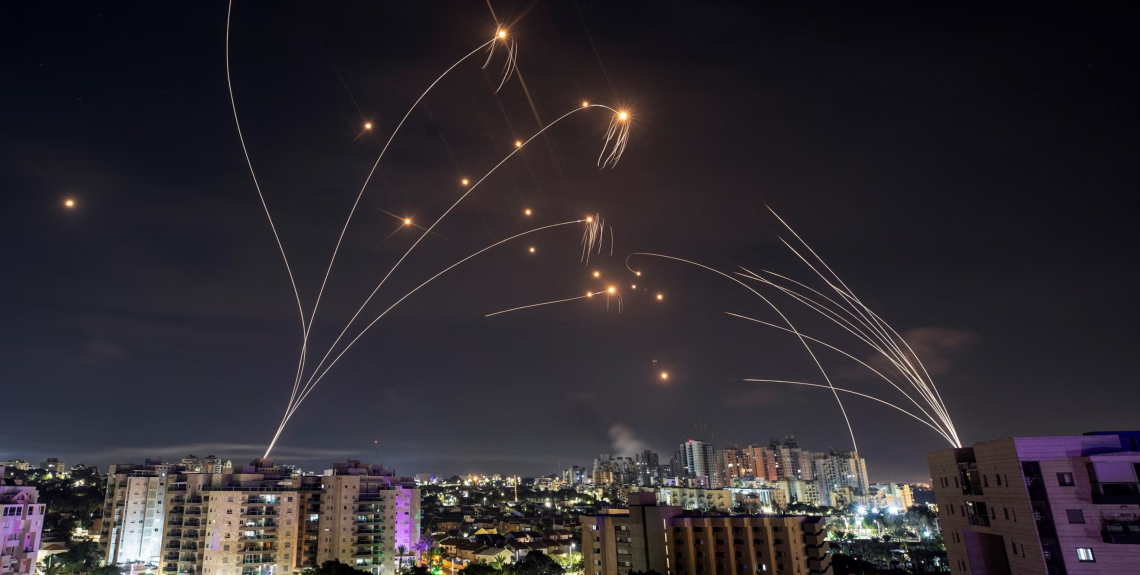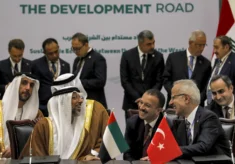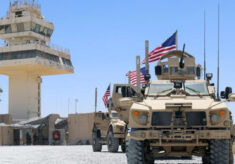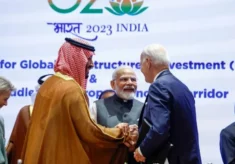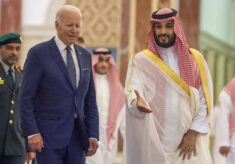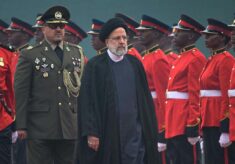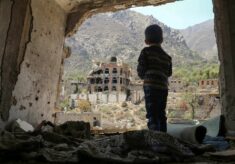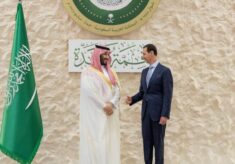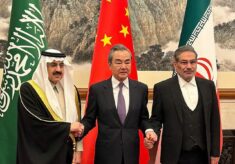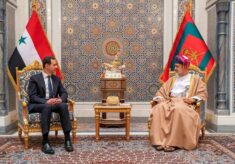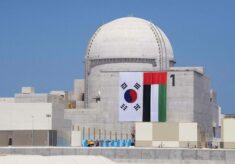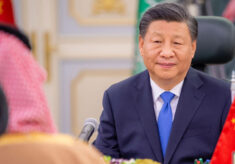The attack with which Hamas has put the decade-long conflict between Israel and the Palestinians back on the map of Middle East and North Africa (MENA) watchers came as a surprise for the authorities in Tel Aviv, whose intelligence evidently failed to detect the moves of the terrorist organisation and affiliate groups ruling the Gaza Strip since 2007.
The offensive, launched a day after the 50th anniversary of the Yom Kippur war in 1973, also caught on the wrong foot the monarchies in the Gulf, some of which have already established diplomatic ties with Israel of recent, or were planning to do so in the short term. Under increasing pressure from the US, Saudi Arabia has been considering following in the footsteps of Bahrain, Morocco, Sudan and the UAE for quite some time, demanding (among other things) explicit security guarantees and access to nuclear capabilities (including uranium enrichment technology) in exchange for joining the Abraham Accords.
The most recent crisis in Israel and the Palestinian Territories, which as of the end of the second decade of October features an estimated 6.487 fatalities on both sides and 212 hostages (UN OCHA), has evidently pulled the brake on the normalisation drive, started with the Abraham Accords (15/09/2020).
Since long engaged in an underground war with Israel that occasionally resulted in black operations, sabotages, targeted assassinations of spies and key personnel, Tehran finds itself in an awkward situation: on the one hand, it has to keep up its traditional anti-Tel Aviv stance, on the other it cannot engage directly or indirectly in the conflict due to its internal weaknesses and the risk of confronting a significant US action, on the other, while broadly and consistently opposing the normalisation process as anti-Palestinian, it cannot undermine its own normalisation with Riyadh.
Despite some claims, specialists and involved governments are very cautious about Iranian previous knowledge of the impending operation, direct involvement in the detailed preparation of it, presence of advisors in the Gaza Strip, while broadly agreeing to financial help, probable technical help in rocket local production, transmission of operational concepts and meetings (even sometimes public). The OPSEC (Operational Security) by Hamas has proven to be so tight in stemming any information leak that the only remarkable warnings came from Egypt and the USA, but not via Iranian sources (since two decades Tehran is top US and Israeli intelligence).
Viewing the issue from another angle, recent reports suggest multiple meetings have been held in Beirut ahead of the attack between the Iranian officers of the Quds Force (the international military arm of the Islamic Revolutionary Guard Corps, IRGC) Hamas and Hezbollah, which raises the prospect of the opening of a new front along the border with Lebanon, should the conflict escalate. For the time being, the Washington has clearly signalled its deterrent intentions with two Carrier Battle Groups deployed in the Eastern Mediterranean, while suggesting to the Netanyahu government to avoid self-damaging escalations. The local government, already under internal pressure over its controversial judiciary reform, is now clearly deemed responsible for the debacle and the break of confidence between the public and the armed services (Haaretz).
As anticipated, Teheran sees Gaza also as a serious opportunity to consolidate the anti-normalisation front rejecting any ties with Israel. Based on the so-called Axis of Resistance that includes Shia militias that act as proxies for the regional agenda of Teheran, this grouping is now widened to Sunni groups such as Hamas, on which Iran has gradually but inexorably extended its influence.
Consequently, Saudi Arabia had to issue an official statement in which, alongside calling for an immediate cessation of the hostilities, also recalled its repeated warnings about the danger of the ongoing Israeli occupation and deprivation of the Palestinian people of their legitimate rights.
Apparently, the efforts of the Biden administration to add Riyadh to the Abraham Accords will be on hold for the foreseeable time, while the general Gulf political paradigm appears to be one of competitive collaboration (co-petition) involving Iran, Saudi Arabia and the United Arab Emirates. The objects of competition are simultaneously the normalisation process with Israel, the parallel diplomacy with Tehran and a Palestinian cause brutally propelled to the forefront by Hamas’ offensive.

